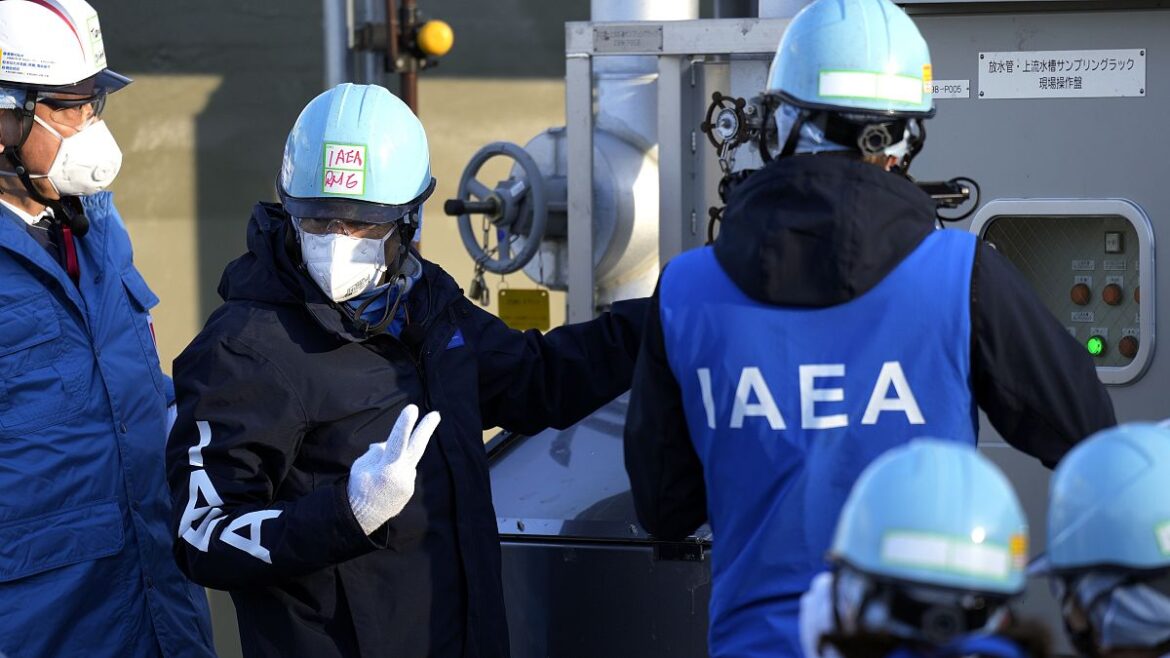The director of the International Atomic Energy Agency, Rafael Grossi, said the discharge of radioactive wastewater complied with international standards.
International Atomic Energy Agency (IAEA) Director General Rafael Grossi told Japanese officials at a meeting in Fukushima that the discharge of treated radioactive wastewater at the crumbling nuclear plant complied with standards of security.
He joined local officials and representatives of fishing groups and businesses and reassured them that the discharges are carried out “without impact on the environment, water, fish and sediments.”_
Mr. Grossi, who arrived in Japan on Tuesday, visited Fukushima for the first time since the release of treated water began in August.
During his tour of the discharge and sampling facility on Wednesday, Grossi was escorted by Tomoaki Kobayakawa, president of the plant’s operator, Tokyo Electric Power Company Holdings.
He last visited the plant in July, after the publication of an IAEA report predicting that the releases would have only a negligible impact.
A detailed IAEA report later concluded that the releases met international safety standards.
The 2011 disaster damaged the Fukushima plant’s power supply and reactor cooling functions, causing three reactors to melt down and large quantities of radioactive wastewater to build up.
After more than a decade of remediation work, the plant began discharging water after treating and diluting it with large quantities of seawater on August 24, beginning a process expected to last for decades.
The discards sparked opposition from fishing groups and neighboring countries, including China, which banned all imports of Japanese seafood immediately after the discards began.
Although there were fears the water releases would further harm Fukushima’s hard-hit fishing industry, they have not damaged its reputation domestically. China’s ban on Japanese seafood has hit Hokkaido scallop exporters the hardest.
Tokyo has earmarked a fund of more than 100 billion yen ($680 million) for compensation and other support measures, including to help find alternative export destinations.



